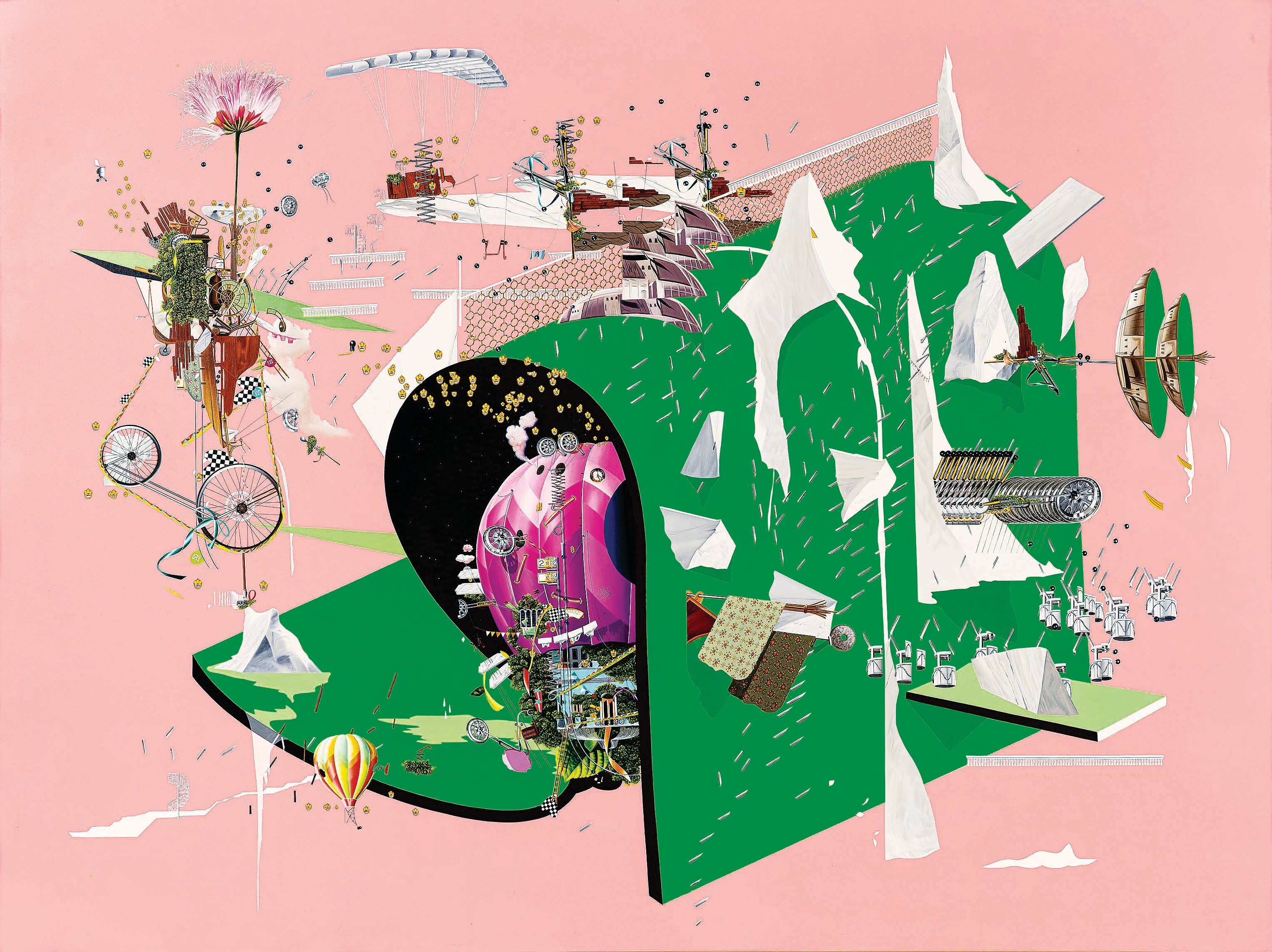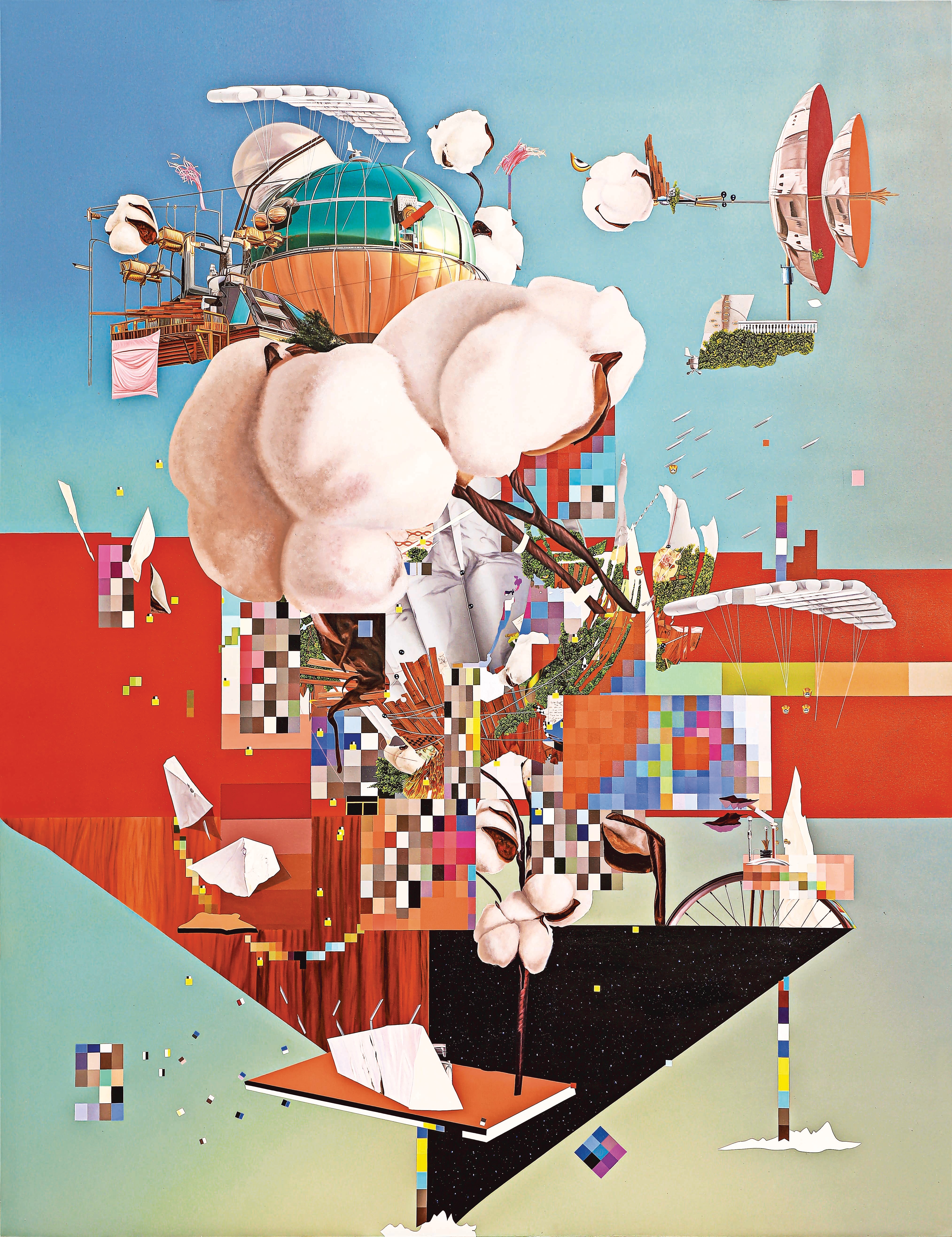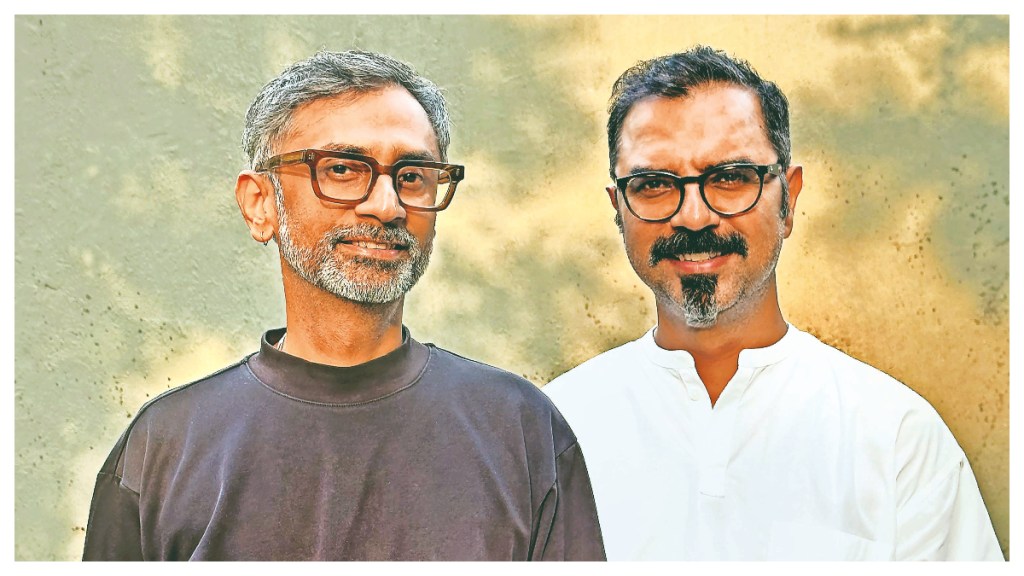A table tennis board built with old currency notes. Another ping pong table with potholes. A new set of gym tools for the multitaskers. The second version of artist duo Jiten Thukral and Sumir Tagra’s Games People Play exhibition is a swift swing from the perception of culture to performance of present-day anxieties.
In 2015, Thukral and Tagra set up Games People Play, their new exhibition, at the Dr Bhau Daji Lad Museum in Mumbai as a lens to observe how people negotiate cultural matters. A decade later, the duo, who use games as a centrepiece of their art practice, invite viewers to participate in such matters as politics, migration, displacement and climate change.
Mounted at the Lalit Kala Akademi, Games People Play 02 has ten works that viewers could engage with to disgorge their anxieties stemming from the social, political and economic crises within contemporary society.

Each game, played over ten days—the duration of the exhibition (October 7-16)—works on the viewers’ emotions and beliefs by linking up the state of society with the plight of the participants.
Crisis and catharsis
“It’s a catharsis,” says Thukral about the show, which marks the 20th anniversary of their collaborative studio work. “We want the people to play the games and express their emotions,” he adds. Assets and Liabilities, the first work on the first level of the exhibition gallery, shows a paper plane-shaped table tennis board whose surface is built with old currency notes.
The duo scanned old currency notes, all belonging to Tagra’s grandfather and had lost value after demonetisation in 2016 when 500- and 1,000-rupee bank notes were removed from circulation, building a pattern out of it on the surface of the table tennis board. Thus, a currency note becomes a vanishing paper plane, symbolising a promise of payment that turns into liability overnight.
Trust and Betrayal, another work on the first level of the exhibition, combines a ping pong table littered with potholes and a mirrored panel, showing a match between the player and the self, once again, like in Assets and Liabilities, disrupting the dichotomy between value and morality.
“Art and gaming have a lot in common,” says Tagra, explaining the significance of gaming as a potent medium of art practice. “Gaming is an improvised exercise. You can constantly play tests. In the same way, exhibition-making can be seen as a playlist. It’s never enough, it’s never compete.”
Mind and matter
Capsule, one of the works on the second-level of the gallery, originates from the need to invent a new physical exercise regimen for a society busy with multitasking.
A viewer can read a newspaper while trampoline jumping or create a resume during cycling.
Nafrat/Parvah—Salon, another work, turns a protest site on its head by allowing a viewer to pen down “hate” in exchange for a haircut or head massage. An ever-expanding project, presented at the Serendipity Arts Festival, Goa last year, the work gathers hand-written hate letters, which would go on to become the material for a future “Museum of Hate”, says Thukral.

Inspired by the best-selling 1964 book, Games People Play: The Psychology of Human Relationships by Canadian psychiatrist Eric Berne, Thukral and Tagra’s exhibition extends a prolific collaborative effort spanning the last two decades. The collaboration began in the first years of the new millennium after the duo had both completed their master’s degrees, Delhi-born Tagra at the National Institute of Design, Ahmedabad, and Jalandhar-born Thukral, a Master of Fine Arts degree from the Delhi College of Art.
Games and goals
“That was a time when we started working online. I will send him a 500 KB file and he will do something with it and send it back to me,” recalls Tagra.
“Our first work together was a one inch-by-one inch book, which is now displayed in the Library of Nagoya in Japan. Our first exhibition was at the Nature Morte gallery in Delhi in 2005. So this exhibition marks 20 years of our working together as a studio,” he adds.
Thukral and Tagra launched Games People Play in Mumbai ten years ago as a contemporary conversation with history. “We thought of the museum as a gaming arena of cultural matters where the muscles are flexed, toying with the idea of sportsmanship and playing. I was reading Eric Berne’s book in which he constantly talks about social structures and how they kind of renavigate through those structures. It can be political, environmental or family structures. And how we normally navigate unknowingly,” says Tagra.
“The exhibition had games. I bring table tennis from my childhood and Jiten brings wrestling from his childhood.”
A decade later, the exhibition has become a platform for people to express their emotions.
“We are not telling the people to protest here. We all are going through this battle to settle our hearts. And settling the heart is also this constant effort to feel good about certain things,” says Thukral.
“Unfortunately, we are not in our right mental space today. Change in climate or change in the environment, it is kind of constantly changing our ways of thinking.”









